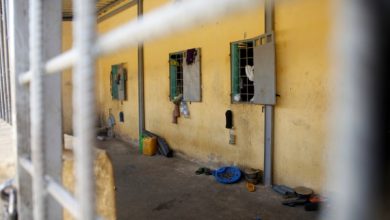Malmö schools seeing rapid improvement

In 2011, Malmö's primary schools, which cater to children between six and 16 years old, were among the worst in Sweden, coming 270th out of the country's 290 municipalities. This year they jumped from 201st place to 127th place, judged by the number of pupils that reach the required standard in all subjects.
Malmö still lies far behind the wealthy next-door municipality of Vellinge, which topped the ranking, however.
“Im happy we are moving forward again in this ranking,” Anders Rubin, the citys mayor for schools, told The Local. “We are now one of the biggest school organizations in Sweden, so have all the muscles we need to support our schools.”
Rubin put the improvement down to the city's decision to centralize its schools, taking them out of the hands of local districts, increased spending, and instituting a schools improvement philosophy developed in Ontario.
In the decade up to 2014, the Canadian province saw the percentage of students meeting numeracy and literacy standards rise from 54 percent to 71 percent while high school graduation rates increased from 68 to 83 percent.
"We dont copy them because Sweden isnt Canada, but we try to learn from them," Rubin said of Ontario's impressive record. "They took about 25 years, and we have done just eight years. So we are just at the beginning."
He said one of the lessons from Canada was for politicians to keep their "itchy fingers" under control and limit the number of new policies and ideas they impose on schools.
"We try to help our schools really focus on school development, and from a political point of view, one of the important things is to make sure that we dont interfere in a bad way,” Rubin said. “We have told them [headteachers], 'We will never interfere in any of the decisions you make, but we will ask for results'."
He said Malmö Municipality saw its primary roles as making sure enough money was available for schools, ensuring that headteachers were competent, and collecting and sharing information on best practices.
Right now, he said, the municipality was working hard to address a teacher shortage by trying to recruit in countries such as Greece and Finland, training up teachers who have come to Sweden as refugees, and trying to lure graduates from other professions.
“More money would be nice, but we have a lack of what we want to buy,” he said. “We need to buy good, educated teachers, and there arent enough of them.”
Rubin will leave his position in 14 days when the mayor for schools position is handed over to the Liberal Party, which is joining the Social Democrats in a new coalition government.
[contf]
[contfnew]
thelocal.eu
[contfnewc]
[contfnewc]



